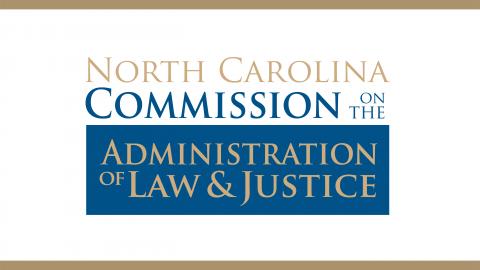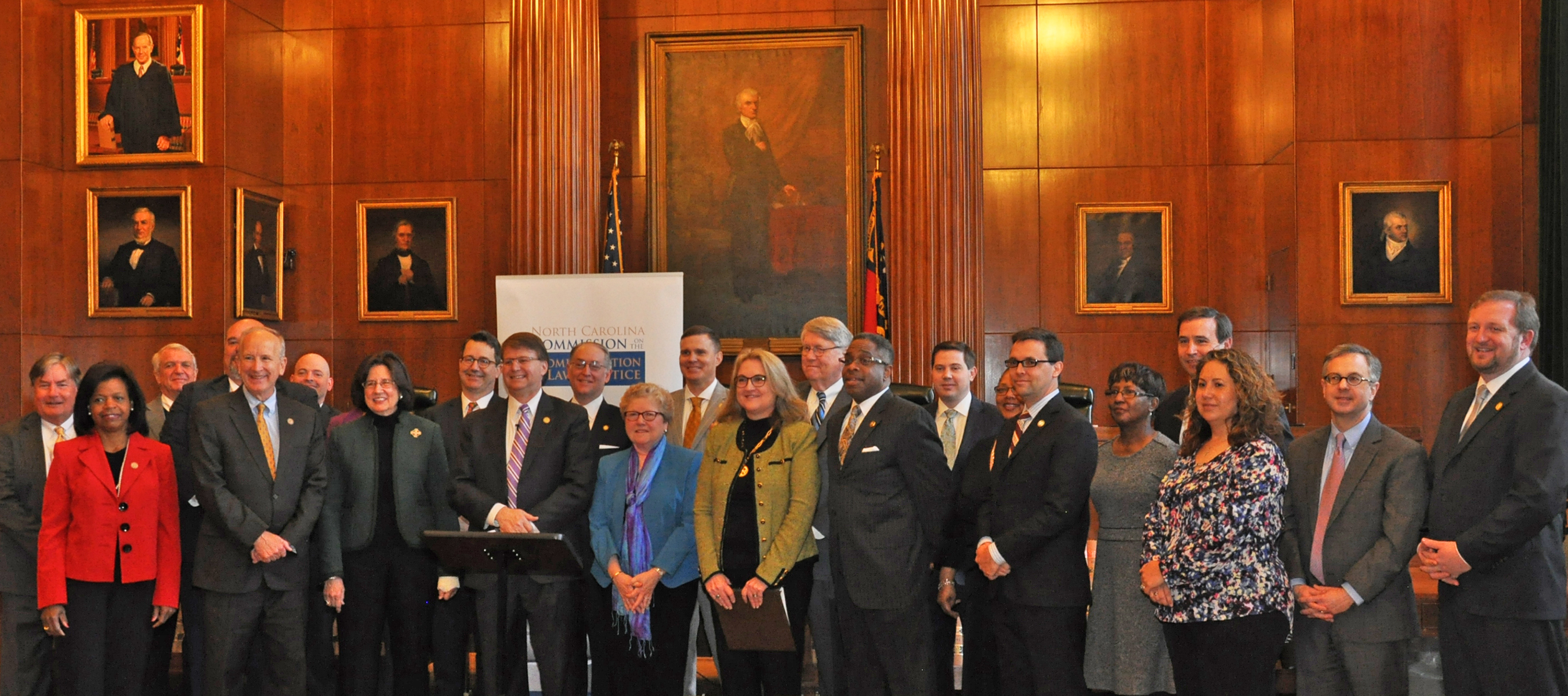NCCALJ Presents Final Report to Chief Justice Martin
Article contents

The North Carolina Commission on the Administration of Law and Justice (NCCALJ) presented its final report to Chief Justice Mark Martin on Wednesday, March 15, during a ceremony at the Supreme Court of North Carolina. The report includes recommendations to strengthen the state's court system to best meet institutional needs and 21st century public expectations.
Recommendations include implementing a strategic technology plan for paperless courthouses, raising the juvenile age, reducing case delays and improving efficiency, and assisting the growing number of self-represented litigants. These recommendations reflect the understanding that public trust and confidence in the courts is at its highest when the courts are seen as fair, accessible, and effectively managed.

In a letter included in the final report, co-chairs wrote: "We are confident that the recommendations of the Commission will significantly improve the administration of justice in the courts of North Carolina for the people of North Carolina. Thank you for the honor of serving as the chairs of this important work."
NCCALJ is an independent, multidisciplinary commission comprised of leaders from business, academia, the Judicial Branch, the Legislative Branch, the Executive Branch, the legal profession, and the nonprofit sector. The Commission includes these five co-chairs and five committees:
- Catharine Arrowood (former president, N.C. Bar Association), Legal Professionalism Committee
- Justice Barbara Jackson (associate justice, Supreme Court of North Carolina), Technology Committee
- David Levi (dean, Duke Law School), Civil Justice Committee
- William Webb (retired magistrate judge, U.S. District Court for the Eastern District of North Carolina), Criminal Investigation and Adjudication Committee
- Brad Wilson (president and CEO, Blue Cross and Blue Shield of North Carolina), Public Trust and Confidence Committee
The committees conducted research, consulted with numerous experts and court officials, and engaged in collaborative discussions to identify areas for improvement in North Carolina's court system. The Commission's members collectively volunteered more than 4,200 hours of service, including 62 meetings and 102 presenters. This past summer, the Commission produced interim reports and gathered public input through online comments and four public meetings held across the state with 423 citizens in attendance and 238 public comments. Its work was completed over a 15-month period.
"The Commission's recommendations create a framework for dramatic, systemic improvement in the administration of justice in North Carolina," said Chief Justice Martin. "The work of this blue-ribbon Commission will help ensure that North Carolina's Judicial Branch meets the needs and expectations that the people of North Carolina have for fair, modern and impartial courts."
The N.C. Administrative Office of the Courts, along with other component parts of the Judicial Branch, will implement the Commission's recommendations.
ABOUT
The North Carolina Commission on the Administration of Law and Justice (NCCALJ), convened by Chief Justice Mark Martin in September 2015, is an independent, multidisciplinary study group created to undertake a comprehensive evaluation of the judicial system and make recommendations for strengthening our courts within the existing administrative framework. The Commission is tasked with examining five areas of broad inquiry within the state's Judicial Branch: civil justice, criminal investigation and adjudication, legal professionalism, public trust and confidence, and technology. The NCCALJ is comprised of 65 voting members (plus eight reporters and over a dozen ex officio members) with leaders from business, nonprofit organizations, government, and universities.